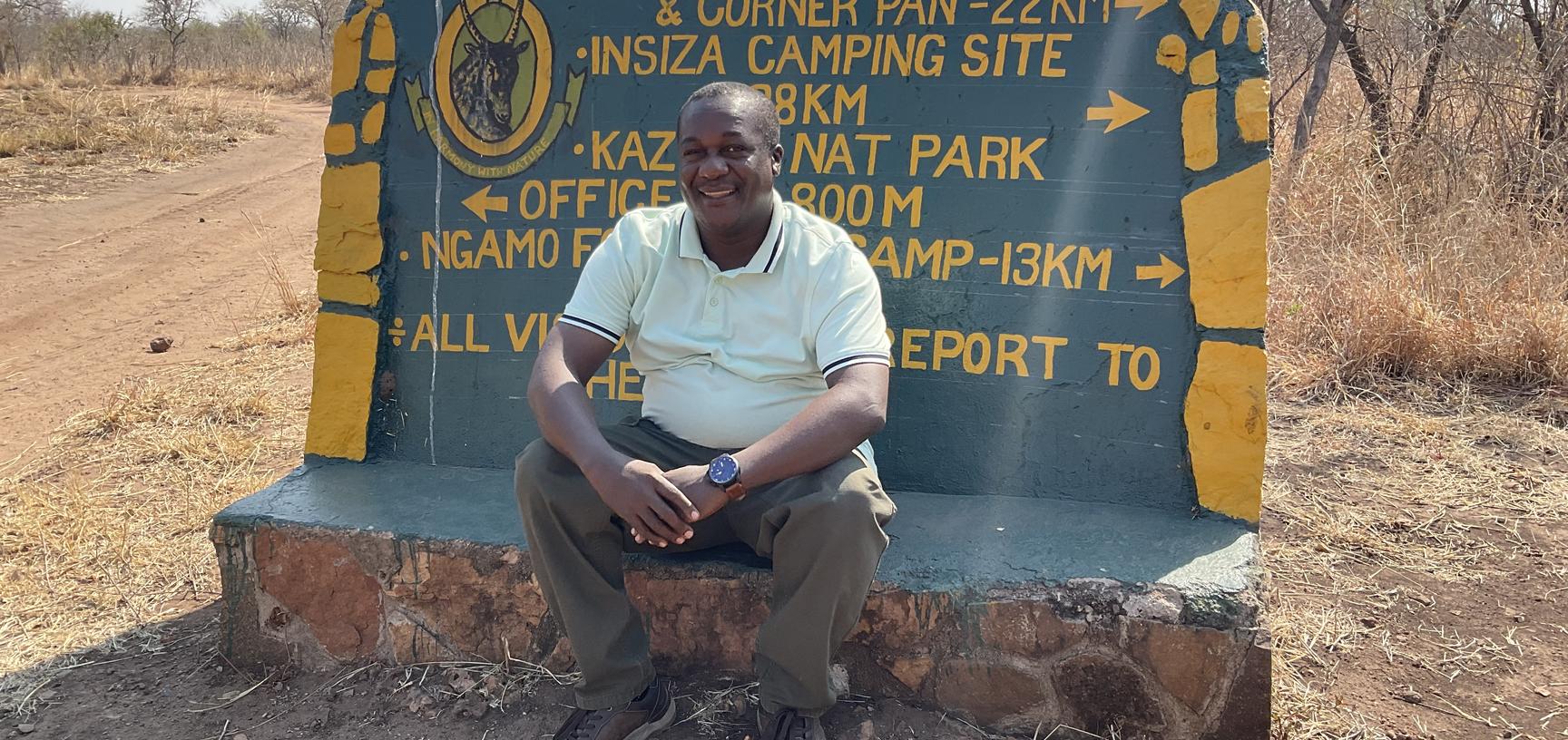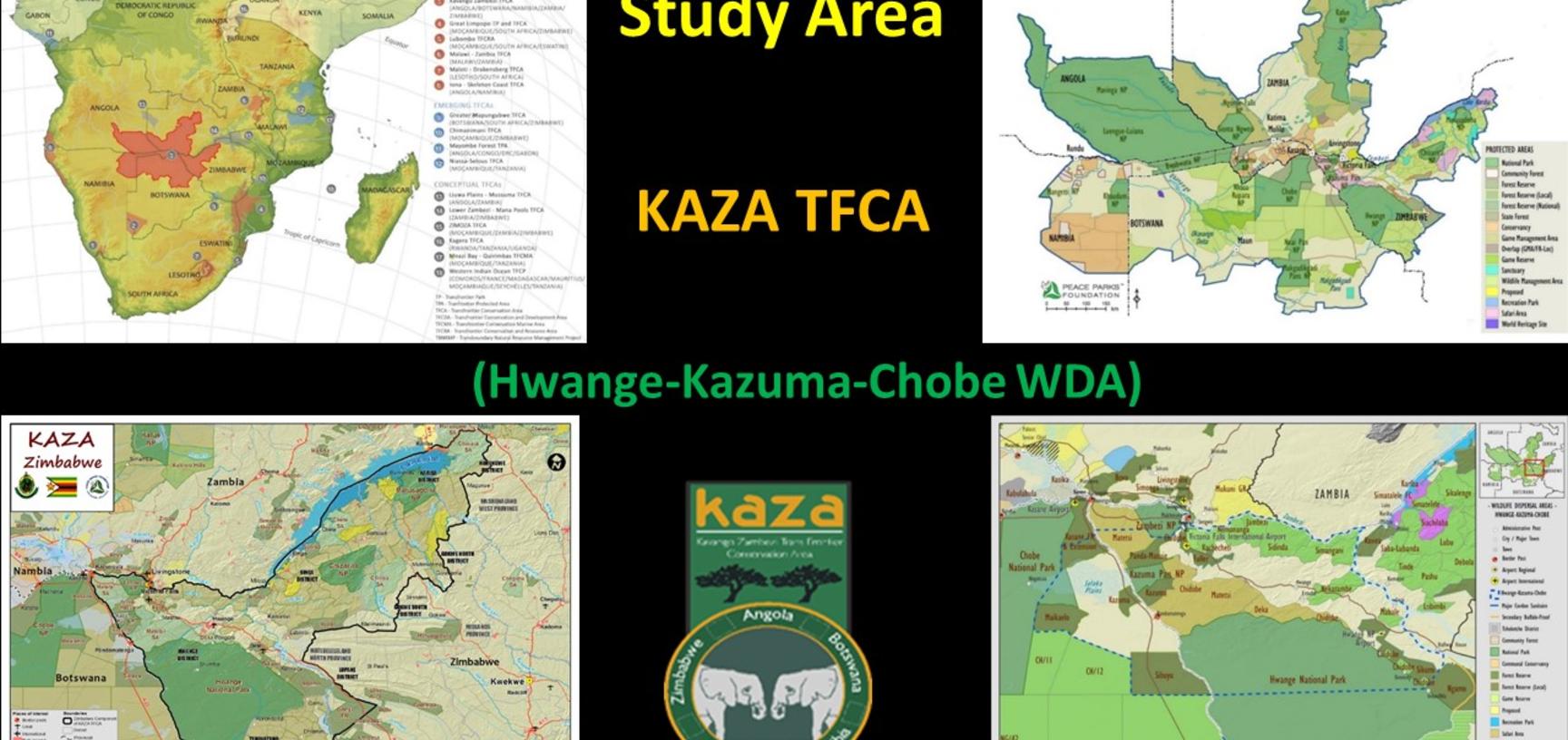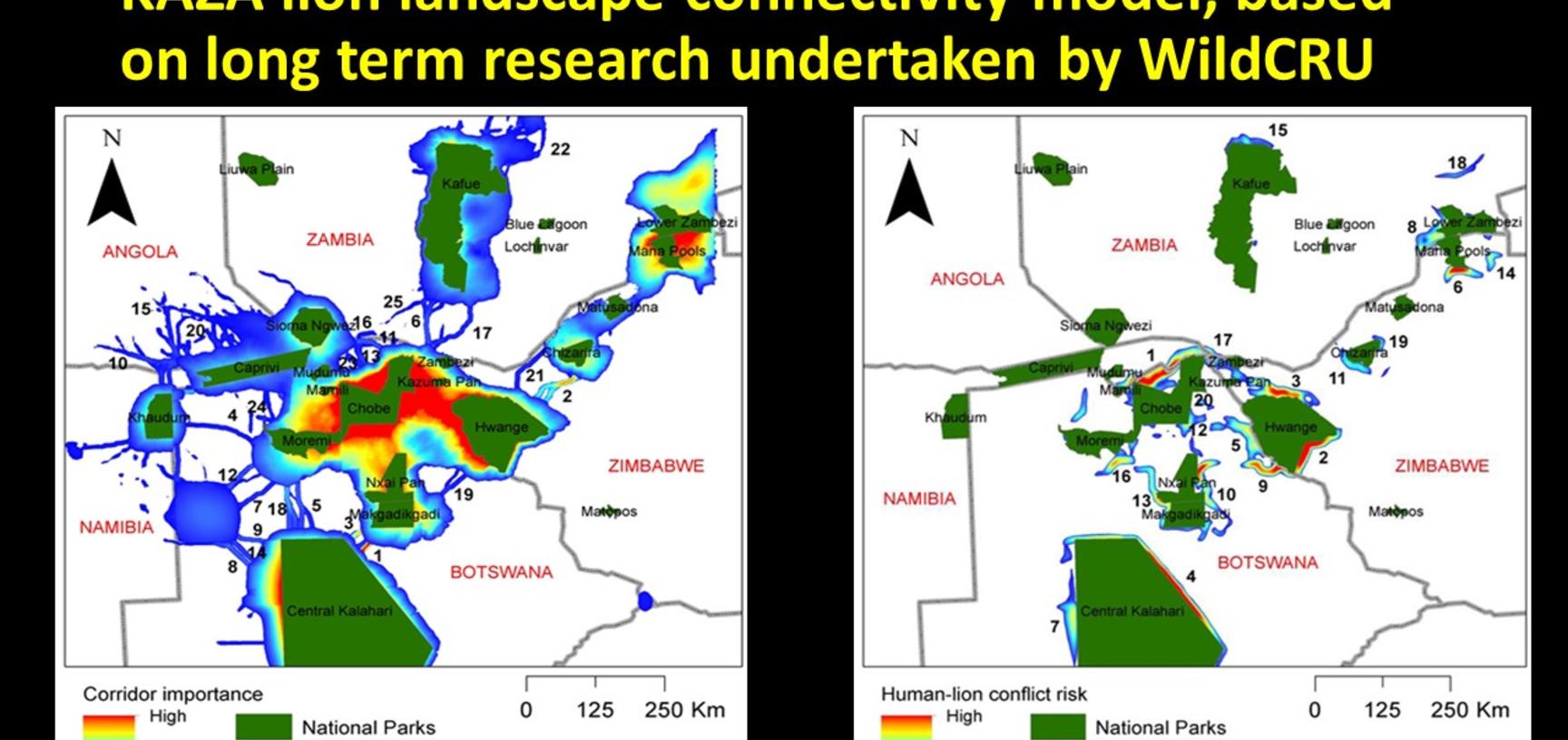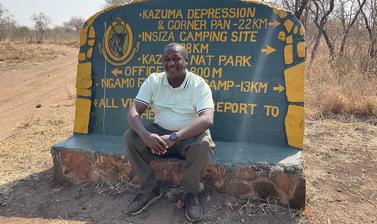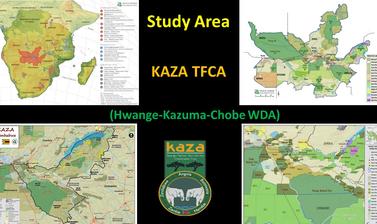"Our hope for the future is each other": Godfrey Mtare for Black History Month 2022
The third in our Black History Month 2022 blog series, Godfrey Mtare shares an overview of his DPhil project developing methods to support cross-border habitats for African lions.
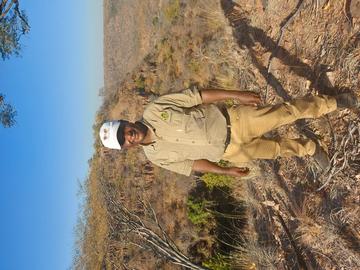
My DPhil research focuses on how transboundary landscape connectivity could propel robust wildlife economies; hence transforming community livelihoods. In order to demonstrate this, I am modelling African lions (Panthera leo) and crystalizing the results with a unique cross-border tourism product – the KAZA UniVisa.
The overarching goal of the study is to maintain a large carnivore habitat network across the KAZA Transfrontier Conservation Area (TFCA) where African lions are secured within and outside protected areas, and can co-exist with people and move freely across the landscape - which provides an enabling environment for tourism development; hence a robust and thriving wildlife economy. As such, it is assumed that this realization will hugely assist policy-makers in making interventions that enhance the goals of KAZA TFCA as a conservation and development landscape in the context of African lion, seamless movement of tourists and rural socio-economic livelihoods.
How did I become interested in this area of research?
It is no doubt that the well-being and security of African lion and other wildlife is deeply interlinked with that of Africa’s people; hence a rapid transformative action is required to ensure the sustainable future of key coexistence landscapes such as KAZA TFCA. This conundrum made me realize that any further loss of connectivity would continue reducing the size and quality of available habitat, impede and disrupt movement (including dispersal) to new habitats, and affect seasonal migration patterns. Consequently, this will negatively affect development of our wildlife-based tourism and ultimately community livelihoods.
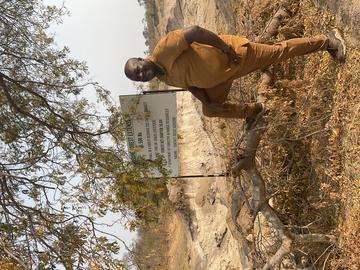
Working in TFCAs, such as KAZA, has provided me with a rich opportunity of working closely with many different stakeholders and groups of rural women. They are doing a huge part to protect the environment and to make better living conditions for their communities and wildlife in the areas they live in. Yet, they continue bearing the blunt of living with this very wildlife!
I have always had a great zeal and passion for biodiversity conservation at landscape-level scale and globally. I strongly believe in utilizing the skills, tools and leadership experiences gained over my current 16 years in conservation in order to cultivate a deeper relationship with communities, policy and decision makers; hence making a significant contribution. I would be keen to put into good use the impactful research work and conservation practice to nourish my professional career in our developing African continent.
What needs to change in the biosciences?
There has to be a change in the visual narrative of people in nature and helping create a future where nature and people of all communities thrive together. In ecology, the basic principle recognizes that diversity in an ecosystem fosters strength and resilience. In the same vein, this applies in our communities, organizations and institutions. It should be imperative to work together and deliver the impact and positive change.
My advice for other Black biologists is: our hope for the future is each other! We can only solve our planet’s most complex problems if we find strength in our differences and bring together a diversity of ideas. Further, we need to dispel myths about Black people and the outdoors, and generate enthusiasm for nature.
